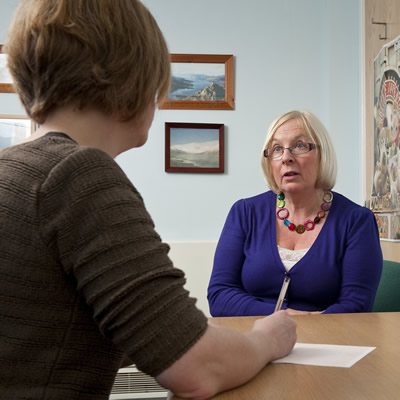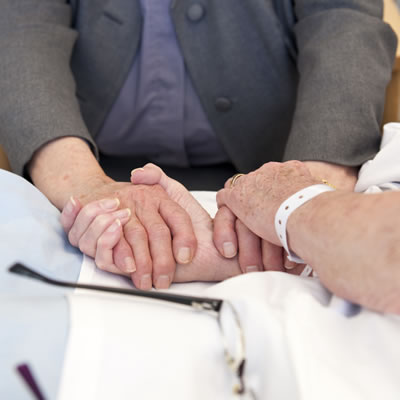
© Crown copyright 2009
COPD is a long term condition which is not predictable and once lung damage has happened it is not reversible. The challenge of being unpredictable is that it is difficult to anticipate if or when your COPD will deteriorate. Everyone with COPD is an individual. Thinking about the kind of care you would want or not want if your COPD worsened is known as anticipatory care.
Anticipatory care planning is a process which helps people and their families make even the smallest of decisions about everyday life when things may become difficult.Everyone can benefit from putting their affairs in order, making a will, having insurance and so on, but what about your healthcare?
If you have a long term condition this may be particularly beneficial to you. It will help you to manage your condition, improve your health and enjoy a better quality of life. It can also help to reduce some of the stress related to increased symptoms, poorer quality of life, physical, emotional and financial worries. This can become increasingly important as things may start to change.
What is an Anticipatory Care Plan?
It is where you record your future plans and wishes. Important information contained in your ACP may be shared to ensure your needs and wishes are considered in the event of an acute deterioration in your health. You may wish to consider your preferred place of care and other important issues for many months or years before approaching the end of your life. You may not wish to do this just now and that is absolutely fine. Remember, you can change your mind at any time and you can change anything you have written in your plan at any time. Having a plan helps the key professionals looking after you to know what is important to you now, and in the future. If this time comes, anything you have written in this care plan will be carefully considered and respected.
So it is important to continually review your plan and if you make any changes, just remember to make sure you write the changes in your plan and notify relevant people so they are aware of them. However, an ACP is not legally binding, but past and present wishes are always taken into account when planning care.
After making an ACP you are expected to keep this in your possession and share it with anyone involved in your care. Please take it with you if you go into hospital so that the people involved are aware of your plan otherwise they may not be able to carry out your wishes. Many key professionals may be involved in ‘providing’ your care. If the information from the ACP can be shared with other people involved in your care, such as social work, home care provider, ambulance service. This will help you receive the care where and how you wish.
Palliative care is the phase of an illness when care focuses on your symptoms and quality of life. At this stage, it can be helpful to let others know what your wishes are. The period of time palliative care can last will vary but it can last many weeks, months or years. For more information please see Scottish Palliative Care Guidelines.
Advance directives, advance decisions or “living wills” These are your written record of wishes about care and treatment you would prefer to have or do not wish to have. Making these decisions can be done by any well person early on in life to plan for what may happen at the end of life. For more information please see our section on Planning your future care.
End of life care usually refers to the last few days of life. It can be difficult to think ahead to this time, but it also may give you peace of mind to know that your thoughts have been put down on paper if you wish.






 There is no set time when an anticipatory care plan should be made, although it is best to think about what you want when you are well. The wrong time to do this is when you are ill, stressed or in the middle of an exacerbation or flare up.
There is no set time when an anticipatory care plan should be made, although it is best to think about what you want when you are well. The wrong time to do this is when you are ill, stressed or in the middle of an exacerbation or flare up.





